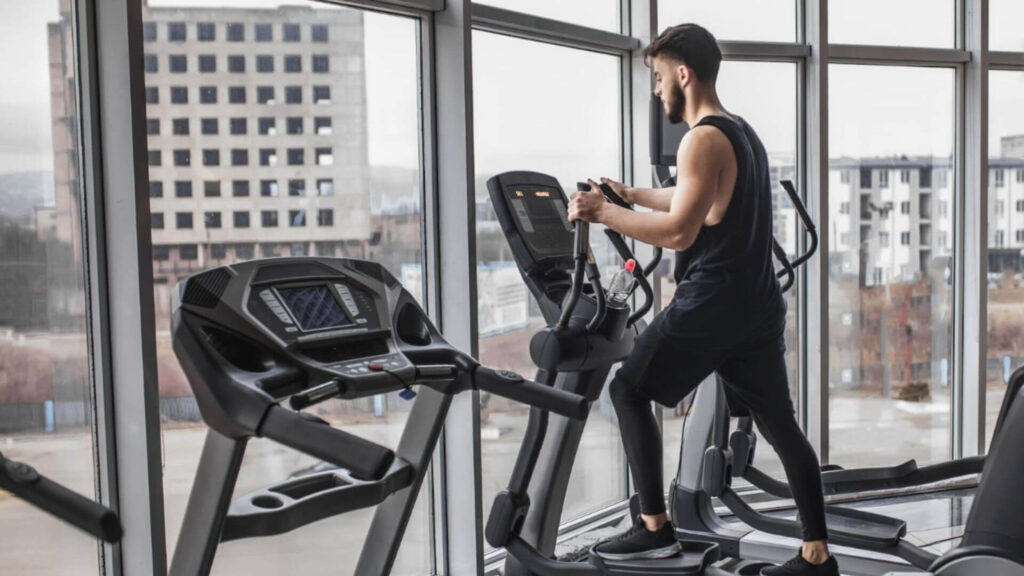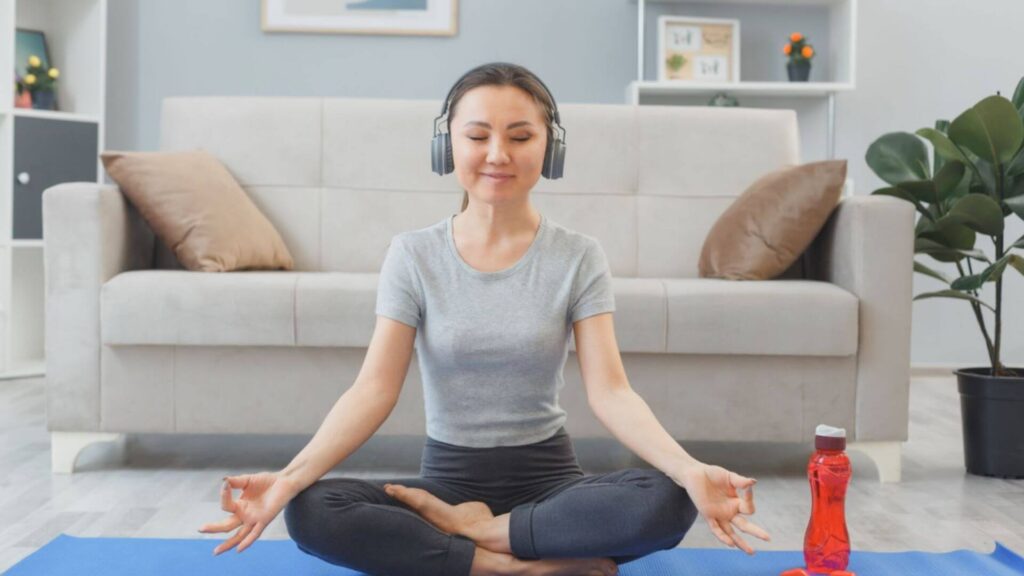Physical activities are not just beneficial for our physical health, but they also play a crucial role in helping us manage stress and improve our overall well-being. Engaging in regular physical activities can have numerous positive effects on our mental and emotional state.
To better cope with the challenges and pressures of modern life. Here are some roles of physical activities that can help in stress management.

Release Endorphins
Engaging in physical activities like jogging, swimming, or dancing is known to stimulate the release of endorphins, commonly dubbed as the “feel-good” hormones. These remarkable chemicals serve as the body’s natural painkillers, working to alleviate discomfort and pain.

Additionally, endorphins have the incredible ability to elevate one’s mood, fostering a profound sense of well-being and contributing to the reduction of stress levels. So, when you partake in these activities, not only do you experience the physical benefits, but you also enjoy a mental and emotional boost that leaves you feeling happier and more relaxed.

Alleviates Anxiety
Regular exercise has emerged as a potent antidote against anxiety and the symptoms associated with stress-related disorders. Through its multifaceted effects, physical activity actively contributes to this therapeutic process. It achieves this by reducing the levels of stress hormones like cortisol, thereby acting as a natural stress-reducer.

Simultaneously, exercise promotes the production of crucial neurotransmitters such as serotonin, which plays a pivotal role in mood regulation and anxiety reduction.
This dual action not only helps in alleviating the immediate physical and mental symptoms of stress but also establishes a foundation for improved overall well-being, making exercise a valuable and holistic approach to managing anxiety and stress-related conditions.
Enhance Sleep Quality
Frequent exposure to stress can disrupt our natural sleep rhythms, leaving us fatigued and more vulnerable to additional stressors in the following days. However, incorporating physical activities into our daily routines can counteract this cycle. By engaging in exercise during the day, we expend energy, making it easier to drift into restful slumber at night. Moreover, exercise has the added benefit of promoting a deeper and more rejuvenating sleep experience.

This enhanced sleep quality allows our bodies and minds to effectively recuperate, equipping us with the resilience needed to cope more effectively with stressors in our lives. In essence, regular physical activity not only facilitates falling asleep but also enriches the quality of our sleep, creating a vital buffer against the disruptive effects of stress on our well-being.

Provides a Focus and Distraction
Physical activities offer a valuable chance to shift our attention away from the sources of stress and immerse ourselves in the present moment. Whether it’s a brisk run, a session at the gym, or a tranquil yoga practice, these activities encourage us to concentrate on the physical sensations and movements involved, effectively diverting our minds from worries and creating a space for relaxation.

This respite from stress provides an opportunity for mental rejuvenation and often results in gaining a new perspective on our concerns. With a clearer and more composed mindset, we’re better equipped to approach problems and challenges, allowing us to tackle them with a fresh and more resilient outlook.
In essence, physical activities serve as a powerful tool for momentarily escaping the clutches of stress and reinvigorating our mental clarity.

Boost Self-confidence
Consistent engagement in physical activities not only enhances our physical fitness and well-being but also plays a crucial role in bolstering our mental resilience. As we make progress towards our individual fitness objectives, we experience a profound sense of achievement and a boost in self-assurance.

This heightened self-esteem serves as a protective shield against the negative impacts of stress, fortifying our ability to confront challenges with greater efficacy. In essence, the journey to improved physical health through regular exercise not only reaps physical benefits but also bestows us with the psychological tools needed to confront stressors head-on and navigate them more confidently.
Social Support
Numerous physical activities offer the opportunity for social interaction, whether it involves joining a sports team or participating in group exercise classes. When we engage in physical endeavours alongside others, it fosters social connections that extend beyond the physical benefits.

This shared experience creates a supportive network, providing us with companionship, understanding, and an avenue to exchange thoughts and emotions. This social support system becomes particularly invaluable in the context of stress management. It not only offers a comforting sense of belonging but also provides a receptive audience for our concerns. In essence, engaging in physical activities within a social framework not only promotes physical well-being but also enriches our emotional health by offering a vital support system that can significantly aid in our ability to cope with stress.

In conclusion, the relationship between physical activities and stress management is undeniably profound and multifaceted. Engaging in regular exercise not only triggers the release of endorphins, acting as natural mood elevators and pain relievers but also helps reduce stress hormone levels like cortisol. Moreover, it contributes to improved sleep quality, allowing for better stress recovery.
Physical activities offer a unique opportunity to redirect our focus from stressors to the present moment, fostering mental relaxation and clarity. Additionally, achieving personal fitness goals through exercise can boost self-esteem, providing a buffer against stress and enhancing our ability to face challenges confidently. Lastly, the social dimension of physical activities allows for valuable social connections and emotional support, further aiding in stress management.
Incorporating physical activities into our daily lives, whether it’s through individual workouts or social engagements, emerges as a holistic approach to not only mitigating the immediate effects of stress but also building resilience for long-term well-being. The physical and mental benefits of exercise underscore its importance as a powerful tool in our arsenal for managing stress and improving overall quality of life.

